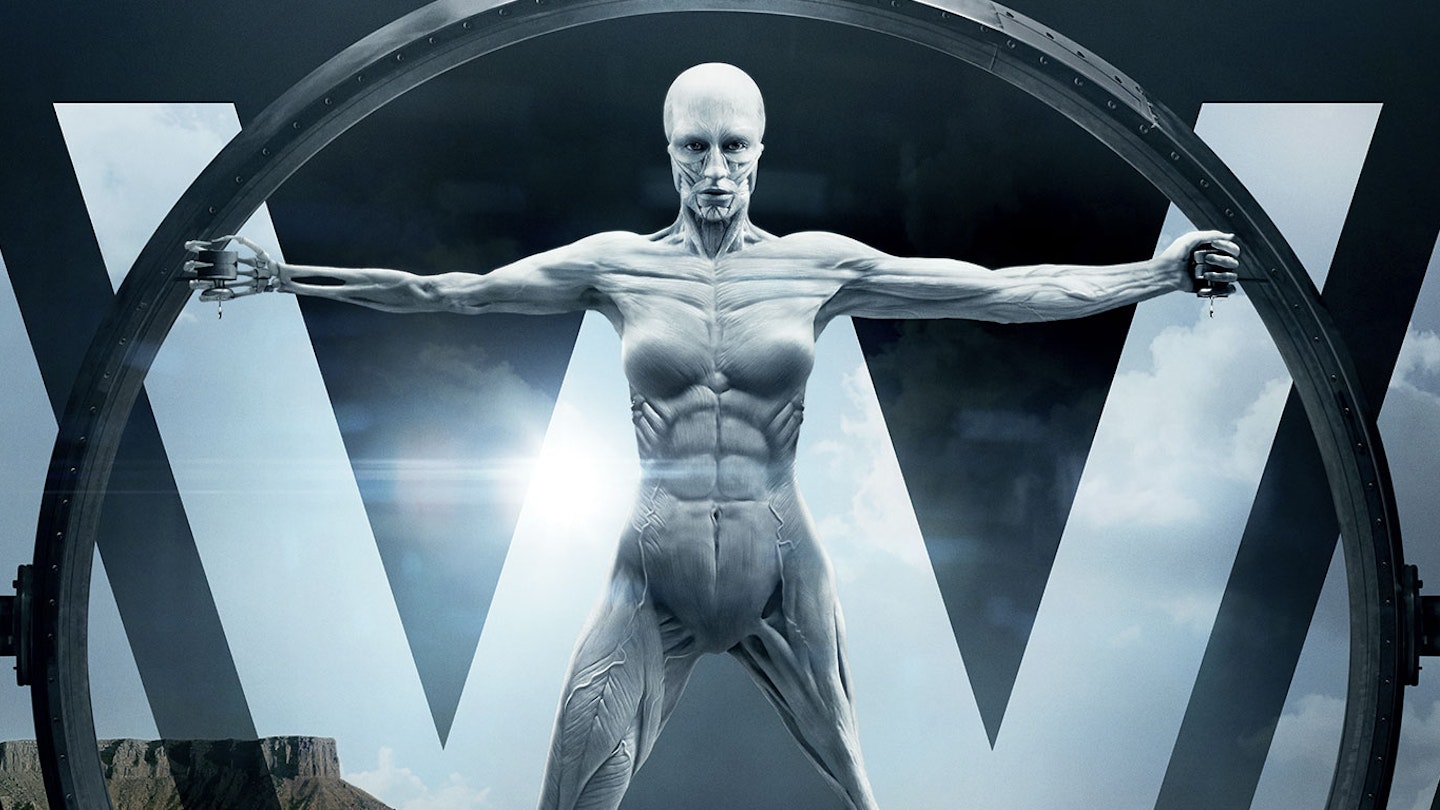The one thing that Westworld has that Disneyland doesn't are Hosts that are put there to do the bidding of the park’s guests, much to the relief of Snow White, Belle and innumerable others working at the latter. And among those Hosts is Clementine Pennyfeather, a prostitute who is officially described as “one of Westworld’s most popular attractions, every aspect of Clementine is perfectly beguiling, by design.” In episode seven,“Trompe L’Oeil,” beguiling may take on a new definition as Clementine gets the opportunity to fight back...savagely.
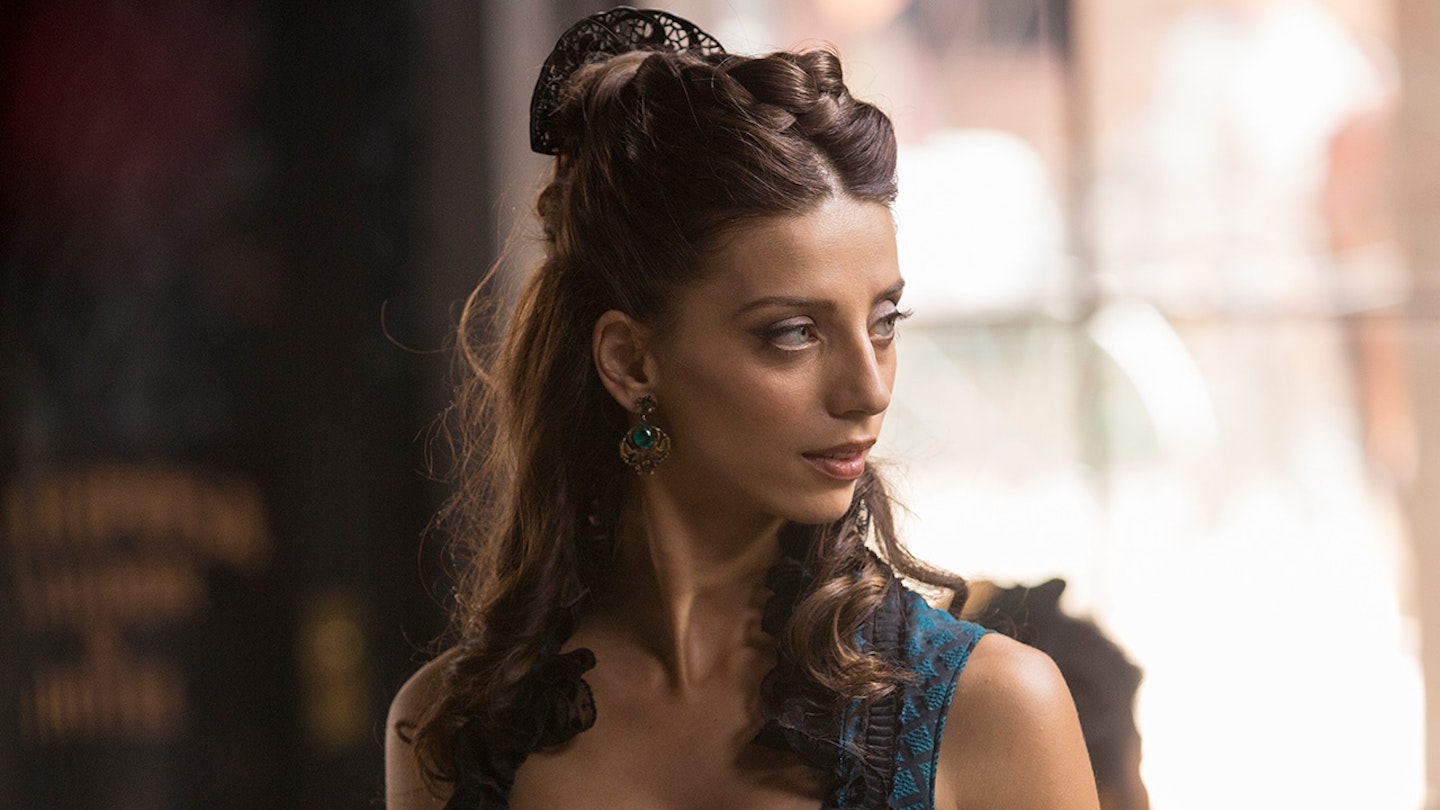
Playing the character is Angela Sarafyan, an actress who has appeared in numerous television series and feature films, including The Twilight Saga: Breaking Dawn — Part 2. In the following conversation, she shares her views on portraying a Host and what Westworld is really all about. Beware spoilers!
You’ve said that this was a project that you had to do. Why? What was it about the material that attracted you?
It's really interesting, because normally when you're auditioning for high-profile shows or movies, you don't get the entire script, you only get a few pages of the material and a lot of the time you're not really affected by what you read. At least it's a very rare thing when I really connect to something, and I made a decision that I only want to work on things that I care about. When I read this material, it was like poetry. It seemed to question the nature of humanity with poetic verse. It was really like Gertrude Stein and Shakespeare in some of those words, but the way they put everything together, you see how one Host can go through different characters in a matter of a minute. It's an actor's dream when you get material like that, because it lets you go beyond naturalistic acting. You use many parts of yourself.
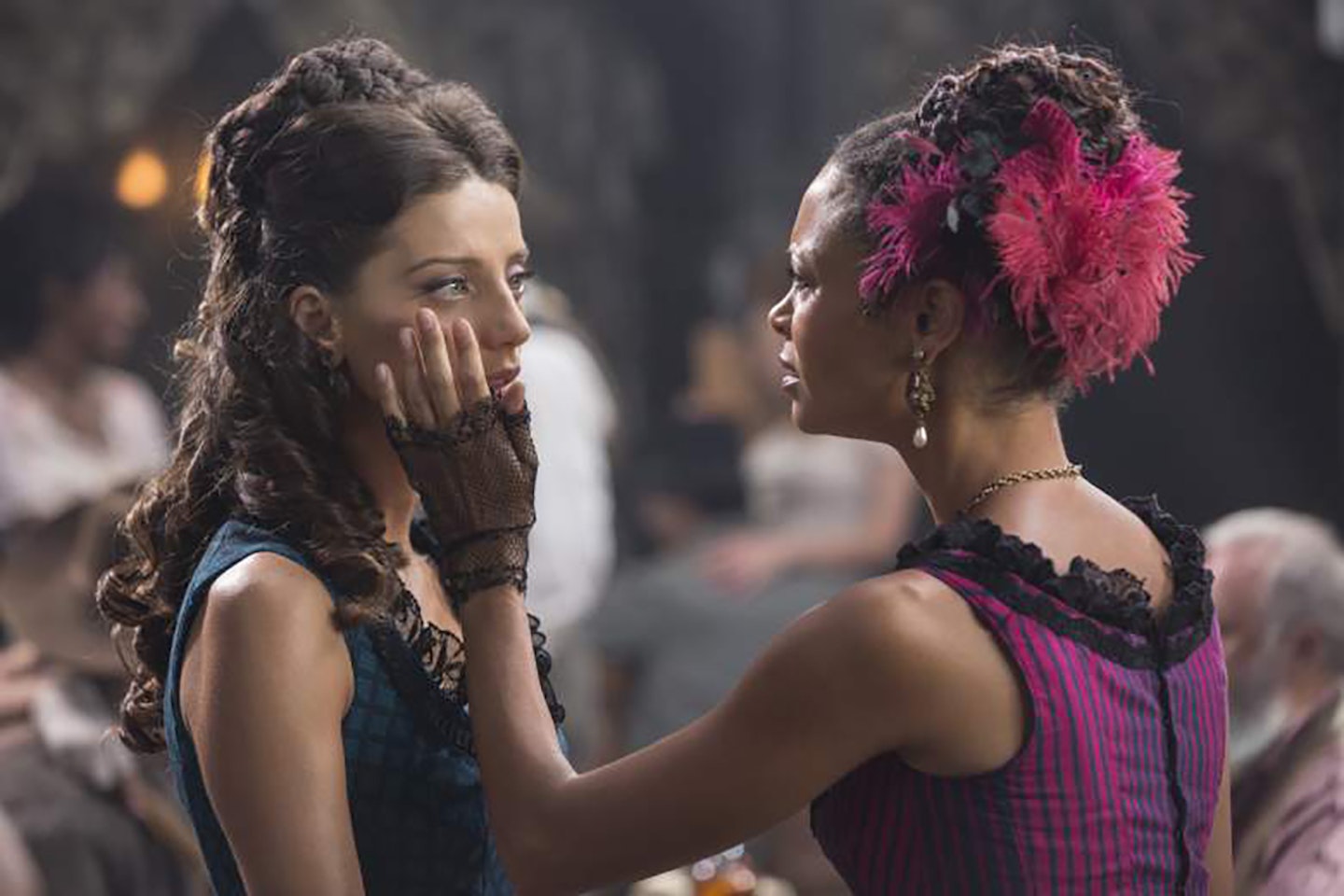
Until the seventh episode, a lot of your scenes were very small ones. Does that allow you to get into all of those things with your character that you’re talking about? In other words, was it in the script or something you brought to the playing of Clementine?
When I auditioned, it was definitely in the material. I learned later that most of us had the same three pages that we got to audition with. Later on I learned what my part was going to be and it was a challenge in a different way, because she didn't necessarily hold the depth of which I’m talking about. On the surface, on the page, it was very simplistic, naturalistic things from being in that time period. The part of it that was really interesting was that she was this feminine creature and I, myself, I'd grown up in the arts. I play classical piano, I dance ballet, but besides that I love history and I love using my mind, I love to write. I prefer people to be attracted to me or be interested in me based on what I'm creating, and not so much what I look like. With Clementine, she really uses her aesthetic. She uses her beauty and her sensuality to attract people. That's a challenge for me personally, because I don't really view myself as a sexual creature, per se. I had to re-look at that part of me, and I learned that there's something beautiful about celebrating that rather than constantly saying, "Stop judging me or basing your opinion on me on my looks or because I'm a woman."
Clementine is definitely an embodiment of that and it’s something I loved playing. I started to celebrate that part of myself and enjoy being this woman with hips and breasts, and how do you seduce each person and how do you play with the same words over and over again? I was looking for life even in the small scenes and seeing what I could bring to that.
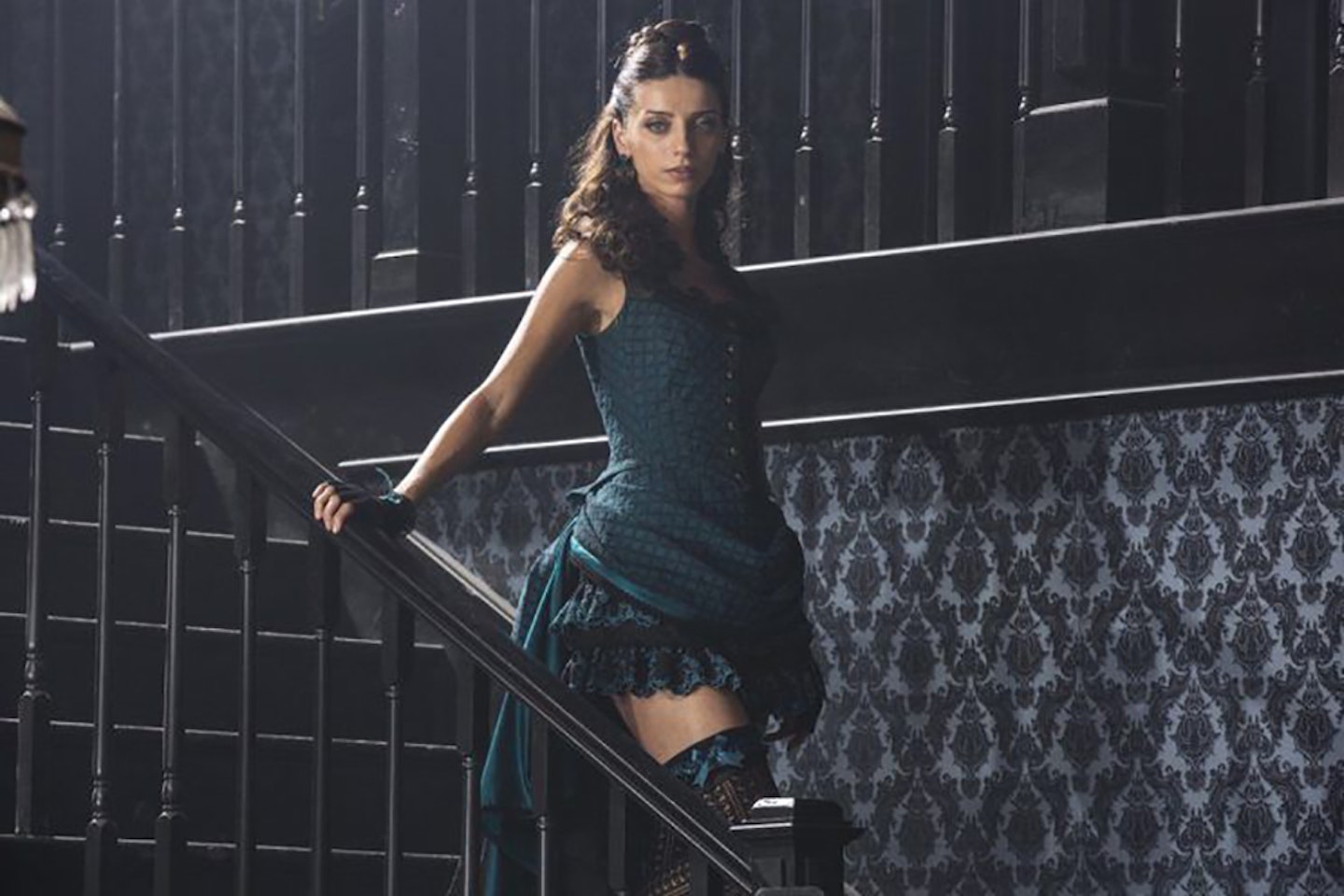
Let's talk about the seventh episode, “Trompe L’Oeil,” where you do do this transition from a very demure character, and a victim at one point, to turning the tables and fighting back physically. What was it like to play that transition?
Empowering. I loved doing that, because, being a ballet dancer, what was fun is that the whole thing was choreographed. And you’re absolutely right, it was very much a victim situation. A domestic violent approach rather than just a fight between martial artists. It was fun, first to be in that victimized position and not knowing what's to come. I like the idea of playing that even though he's hitting me, maybe she goes back to say, "Is everything okay? Are you okay?" There's a very subtle moment where I could play with that, but then it all happens so quickly, I don't know if it is even visible. Then the second part of it, where I get to beat him up, was awesome. It was a lot of fun for me, because I felt like she was an animal, like a lioness going after its prey. I started looking at videos to see how an animal would focus on one thing and how it's going to destroy it or attack it, kill it, and then eat it.
Glad you didn't eat him.
Yeah, that could have been gross.
But watching the videos conveyed a sense of what it would be like to you?
Yes, because she’s not human, so I think there's something almost animalistic and almost very calculated about the way she moves. I would incorporate what could be ballet moves or it could be watching videos of a lion.
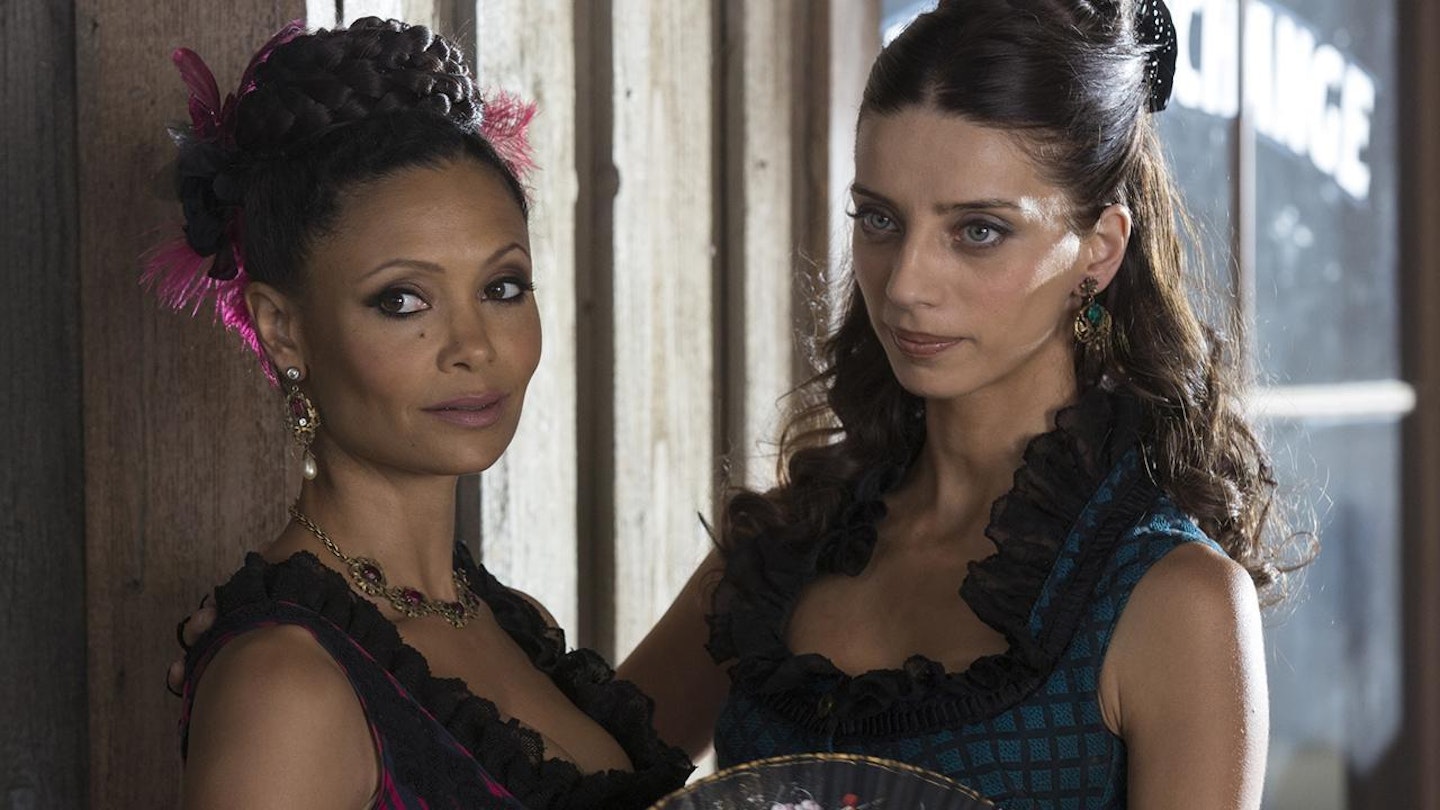
What was interesting is that when she was first beaten down in a demonstration and instructed to take her seat, there’s the slightest trace of vulnerability as she is told to do it again, though that changes when she suddenly fights back.
I was playing with the idea that even though the Hosts are re-programmed, that maybe when you experience trauma, your body remembers it. It's almost like muscle memory, that something has happened, so there could be involuntary nerve movements or there could be things that happen with your body that your brain doesn't necessarily have to be conscious of. So my thought was that she doesn't forget even though she's restarted. That kind of played out however it did, that she's more vulnerable. Even when Clementine turns around and walks to the chair, I thought that there's still something very broken and she has to do these commands because they're programmed in her. "Now you do this," but the effects of what just happened are still very much alive in her.
Which raises the question: what do you think Westworld is saying about us as a people?
It’s a strange thing I’m about to say, but I always think about traffic. A lot of the time when we're driving down the street, people are in their cars and we reveal parts of ourselves even within a structured society. There are very specific rules about how you can drive. You stop at a red light, you stop at a stop sign, and when you're cut off, people lose their minds. When there's traffic, people lose their minds. I think that when you have a place where there are absolutely no rules, you have the ability to almost really be who you are, in a way. There's that line that the character William says, "I've realized that my life outside of here was a fiction and this is who I really am." Something along those lines. Maybe we really don't know who we are, or we just don't want to see our potential — how good we can be or how bad we can be, or how we really think.
That's what the show is questioning; it’s questioning humanity and our capacity as empathetic creatures. That's what I was drawn to. I'm really attracted to the Hosts because I think they're the most innocent of all the beings. They are like babies. They're a clean slate. They're kind of victims of the destruction that people can do to them. If you give love to a baby, they're going to learn that and they're going to give that in return. But if there's hate, then that's mirrored back.
Westworld airs on HBO in the US and Sky Atlantic in the UK.
